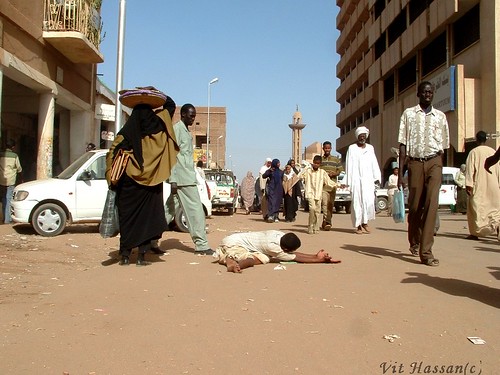
Poverty in Khartoum by Flickr user Vít Hassan, creative commons licensed.
On December 8, 2009, the United Nations Economic and Social Commission for Western Asia released an excellent report by Hassan A. Abdel Ati titled "Sudan and the International Financial Crisis: Effects and Response."
It explains that prior to the global financial crisis the Sudanese economy was one of the fastest growing in the world despite two decades of Western sanctions. Foreign direct investment was also among the highest in Africa. This rapid growth was not, however, broad-based and allowed significant disparities to continue between urban and rural areas and between regions, thus contributing to growing inequalities, increased rural-urban migration and a fast growing urban informal sector.
The international economic crisis created serious problems for Sudan. There was a huge deterioration of the productive sector and a sharp drop in foreign investment. The sharp fall in oil prices led to budgetary instability. In the meantime, Sudan continued to run up high costs for defense and security. The government’s reaction to the crisis was sluggish and disproportionate. The impact was even more severe on southern Sudan, which depends entirely on oil revenue and foreign assistance and largely uses the dollar for its currency.



